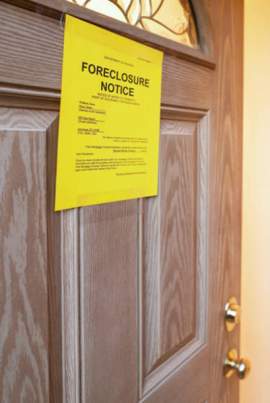
Eviction Process in District of Columbia

Popular In Foreclosure
Deed In Lieu Of Foreclosure Stop Foreclosure Pre Foreclosure Protecting Tenants At Foreclosure Act Of 2009 Deed In Lieu Of Foreclosure Maryland Avoid Foreclosure Foreclosure Help Eviction Process In Missouri Eviction Process In Alabama Foreclosure Process Short Sale Deed In Lieu Of Foreclosure Ohio
If you are being evicted in the District of Columbia, you may not know how to proceed. Learning about the eviction process in District of Columbia can help you understand your rights and options under the law. After reading this guide, you will understand the steps involved in the eviction process in District of Columbia and how long each step will take.
Getting Notice
The first step of the eviction process in District of Columbia starts when your landlord gives you notice. One kind of eviction notice, the notice to quit, applies if you are late with a rent payment. If you are late, your landlord can give you notice to quit, which says you must pay within a certain number of days or face eviction.
Another kind of notice is the notice to correct or vacate. If you have breached your lease, your landlord in general must give you time to correct it (unless you are running a drug haven). The eviction process in District of Columbia specifies that your landlord can only file an eviction suit if you do not respond to these notices satisfactorily in the allotted time.
Court Filings and Hearings
If you do not respond to the notice to quit or notice to correct or vacate, your landlord can begin to file a suit in the eviction process in District of Columbia. The first step is for your landlord to file a copy of a complaint and summons with the courthouse. You will be served a copy of the complaint and summons at least seven days before your hearing date.
You are not required to attend the hearing, but if you fail to appear, your landlord will win judgment by default. If you choose to fight the eviction process in District of Columbia, you should consult with a lawyer experienced in landlord/tenant issues.
At the hearing, the judge will attempt to see if you and your landlord can make a written agreement instead of continuing the eviction process in District of Columbia. You may have to pay late rent amounts or cure breaches of your lease. If your landlord has breached your lease, bring evidence of it to the court hearing and you may be able to seek cures for these breaches during the hearing.
Writ of Restitution
After your hearing is over, if your landlord wins, a writ of restitution will be issued. The only way to avoid the eviction process in District of Columbia after the writ has been issued is if you were originally evicted due to a lack of rent payment. If this is why you were evicted, you can still stop the eviction by paying all rent and court costs to your landlord within the time period specified on the writ of restitution.
The writ of restitution will tell you how many days you have to remove yourself and your personal effects from your residence or face forcible removal. If you are forcibly removed, you may have to pay for storage or disposal of the possessions you have left behind.



















